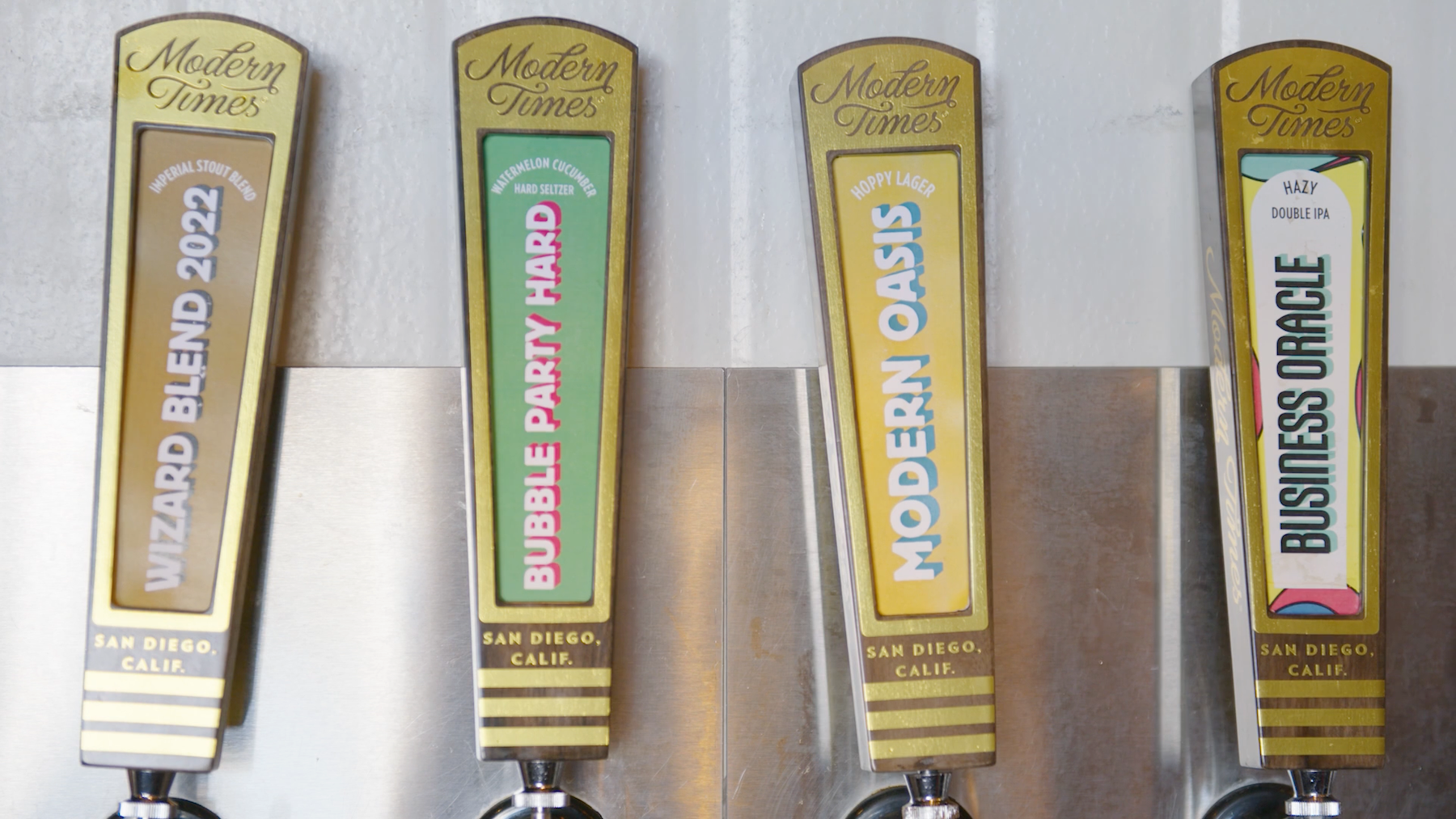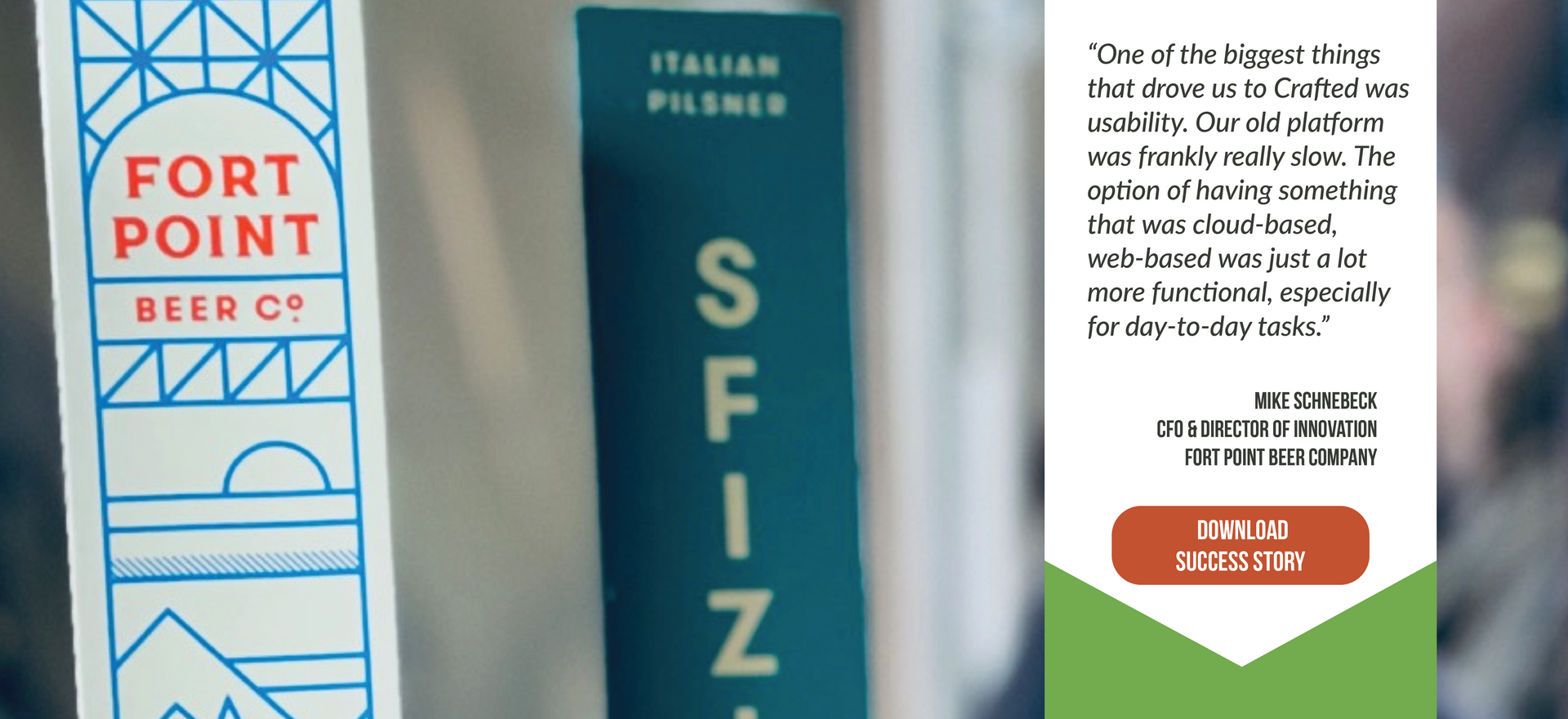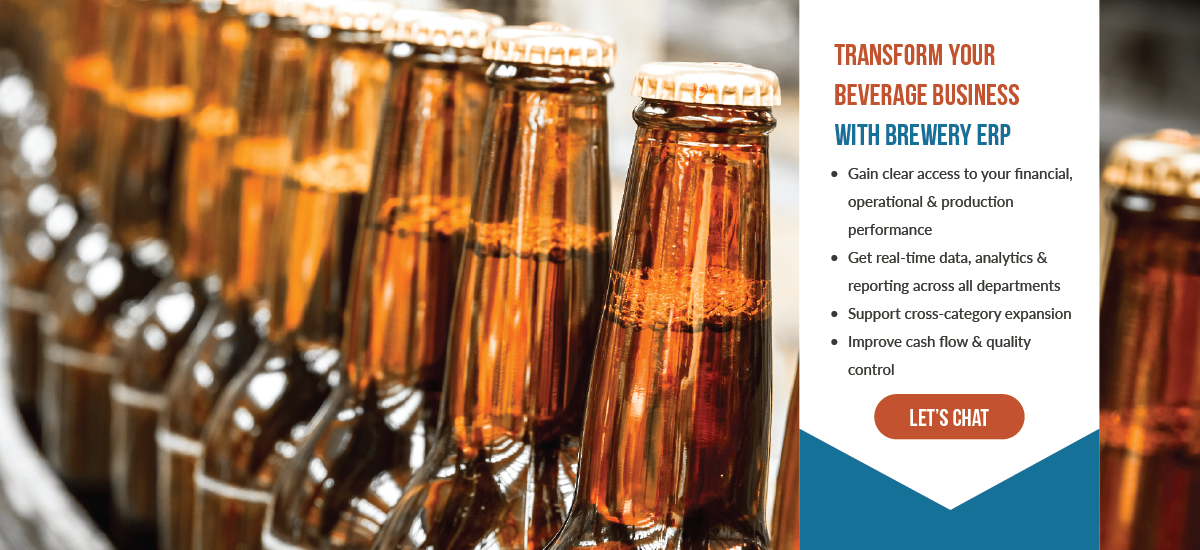The craft beer industry, once a beacon of rapid growth, has hit some obstacles in recent years. In 2019, U.S. breweries reached the peak of production but then saw a significant plunge due to the COVID-19 pandemic. The market bounced back slightly in 2021, only to see a slow but steady decline since.
Many craft breweries
cite this drop in production and volume sales as a result of higher material and overhead costs, more competition within beer and other bev-alc categories as well as difficulties balancing demand with the supply chain. Despite these challenges, opportunities for differentiation and growth remain, particularly through the adoption of technology.
Enterprise resource planning (ERP) software can provide a competitive edge for breweries to simplify operations, improve business management and enhance marketing efforts in a flatlining industry. It allows you to rapidly adapt to changes in the market, assess efficiency in brewing cycles, perform quality checks and reduce process bottlenecks. With real-time monitoring and control measures, you can identify where improvements are needed and make quick adjustments.
Current Challenges Craft Breweries Face
The craft beer market has grown fragmented with the rise of numerous small and independent brewers. Today, there are over 9,300 operating craft breweries in the U.S., up by more than 6,100 a decade ago. This has led to saturated markets and localized competition, slowing the once steady growth of the industry.
Changing consumer tastes and an increased preference for other bev-alc categories has also contributed to craft beer’s downward shift. In 2022, spirit sales surpassed beer for the first time, demonstrating how consumers are choosing spirits and spirit-based ready-to-drink (RTD) beverages over beer.
Additionally, breweries struggle with operational issues like managing cash flow and inventory, retaining top employees, navigating complex state and federal compliance regulations, and, in many states, competing for shelf space over their friends and peers.
The lack of adequate
tools for effective business management and financial tracking is also a roadblock for smaller breweries. Managing operations with disparate software systems is time consuming and leads to operational inefficiencies and data and reporting errors.
Despite the slowdown, there are plenty of opportunities for craft breweries to differentiate and carve out a niche for themselves. Success lies in understanding and capitalizing on these trends, such as
eco-friendly practices, innovative flavors, non-alcoholic beers and even entering other bev-alc categories.
By optimizing operations, breweries can create lean, cost-saving processes. Analyzing consumer behavior and preferences will also help breweries tap into new markets. This is where brewery software can create a competitive edge.
The Role of Brewery Software in a Successful Business Model
ERP software plays an important role in brewery business management, from streamlining operations to improving production, sales, accounting and compliance processes. Real-time monitoring allows for complete data transparency, helping owners quickly adapt to changes in demand or supply.
Refine Production Scheduling and Packaging
Production inefficiencies and difficulty tracking batches can lead to lost time and revenue. Brewery software provides a comprehensive view of operations to assess the efficiency of fermentation cycles, quality checks and packaging and help reduce process bottlenecks.
Brewery ERP allows you to:
- Use drag-and-drop tools to better understand production capacity and downstream impacts of order commitments
- Track and trace every batch of beer for full control of post-production compliance obligations
- Store and manage recipes and label information for each beverage made
- Capture critical tank readings at every stage of the production process
- Plan bottling and packaging times to ensure the end stages of your production process run smoothly
Enhance Inventory Management
Effective inventory management can be a make-or-break factor for your brewery. ERP tools provide detailed visibility into your inventory to ensure you have the right amount of finished product on hand and necessary ingredients for future batches.
Here are some ways brewery software helps with inventory management:
- View live inventory data from multiple warehouse locations, including items committed to production orders
- Predict inventory requirements based on sales forecasts to prevent stockouts and overstocks
- Track expiration dates, lots, batches and other important inventory information
- Monitor inventory value throughout the entire manufacturing process
Improve Brewery Accounting and Compliance Practices
Brewery-specific ERP software covers the unique reporting and financial requirements of the craft beer industry. Owners can gain a consolidated view of all financial information across the entire operation.
Brewery software also enables:
- Cost tracking to better understand profit margins at a granular level
- Better control of the accounts payable process with detailed electronic approvals
- Automation of administrative tasks to minimize mistakes and time spent on routine accounting work
- Configuration of tax management rules to get accurate and real-time GST, excise or other tax reports
- Easier processing of reports to government entities
ERP software can greatly enhance a craft brewery business model and strategic plan. When production, inventory and reporting processes are modernized, teams can focus on what is most important – crafting amazing brews. Then, the next step is getting it in the hands of consumers.
Using Brewery ERP to Energize Marketing and Sales Strategies
Effective use of ERP systems fuels marketing and sales tactics to increase revenue and market share. Brewery software with integrated customer relationship management (CRM) and sales can be a powerful marketing tool used to uncover new opportunities and enhance decision-making.
Leverage Customer Data for Marketing Marketing Campaigns
Integrated CRM tools provide substantial benefits for craft breweries. ERP systems provide data on buying habits, preferences and order history, which can be used to create targeted marketing campaigns to engage specific customer segments.These systems can track the performance of your campaigns, among other KPIs, to help optimize your marketing investments.
Brewery software with built-in sales and marketing modules can provide substantial benefits, including:
- Improved customer relations with a 360-degree view of the customer, including sales history, feedback and communication history
- Automation of marketing tasks, like email campaigns or customer satisfaction surveys, freeing up time for your marketing team to focus on strategy
- Access to real-time “available-to-promise” inventory reports to improve on-time fulfillment while proactively managing expectations
Teams can assess vast amounts of sales, inventory and operational data to uncover buying trends and patterns. Based on this information, you can make decisions about everything from which beer styles sell best during certain times of the year to how sales are affected by local events, weather conditions or demographic changes. Strategic business plans built off informed data leads to more profitable returns.
How to Cultivate a Thriving Craft Beer Business With ERP
Though the craft beer industry is experiencing a slowdown, opportunities for differentiation and optimization remain strong. The adoption of brewery ERP software emerges as a pivotal tool for businesses seeking to refine production processes, manage inventory effectively, reinforce accounting and compliance best practices, and build deeper customer relationships.
ERP empowers breweries to navigate through competitive waters, improve operational efficiency and make informed decisions to stimulate growth and success in the changing landscape.
Help your brewery thrive by leveraging the leading end-to-end brewery software on the market – Crafted ERP.
Contact our team of craft beer specialists who can evaluate your business needs and recommend a software plan that can scale with you as you grow. Don’t be discouraged by a mature craft beer market, turn challenges into opportunities, we're here to help.







GET IN TOUCH
1512 Larimer Street, Suite #150
Denver, CO 80202
United States
(720) 699-0200
66 Goulburn Street
Sydney, NSW, 2000
Australia
+61 2 9044 1330






